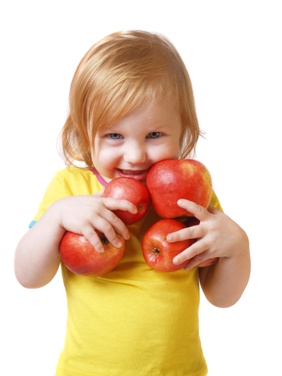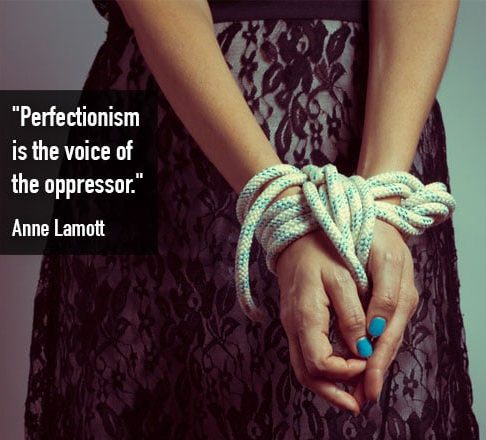How to Create a “Writer Productivity Diet”
Okay, we’re going to have a little nutrition lesson here, and if this makes you cringe, I promise to keep it as short and sweet as possible.
Glucose is at the heart of energy. What is glucose?
It’s a type of sugar you get from foods you eat, and your body uses it for energy. As it travels through your bloodstream to your cells, it’s called blood glucose or blood sugar.
We’ve all heard something about “blood sugar levels,” but you may not have paid much attention to this subject or considered the part it may play in your productivity.
While we are looking at the B in the Productivity ABCs—biology—I would be remiss if I left out a discussion about glucose.
Simply put, we need energy to be productive. We need sugar.
But not just any sugar.
The brain accounts for just 2% of our body weight, but it consumes about 20% of our daily calories (I wonder if we lose weight faster if we concentrate harder). To function well, it needs a constant supply of glucose and fat, and from a healthy source.
Research shows that employees who ate five or more servings of fruit and vegetables at least four times a week were 20% more likely to be productive. (I wonder, though, if that is indicative of an overall healthy lifestyle choice that includes regular exercise, no smoking or excessive alcohol, etc.).
So without spending hours going into all the nuances of diet and nutrition, let’s look at how we might eat to be more productive.
What we eat has a direct impact on our productivity. Plain and simple.
When we nourish our brains and bodies with the right foods (at the best times), it positively affects how we think, feel, create, and remember.
So, to sum up: glucose is sugar extracted from the foods we eat, and our brains need glucose. Following so far? Good.
Not All Foods Are Created Equal
Next point: our bodies don’t process all foods at the same rate.
When we eat foods that release glucose quickly (simple sugars), such as soda, candy, pasta, and white bread, we experience a blood sugar spike that gives us a quick energy burst.
But that’s followed by a drop in blood sugar that leads to a slump. What happens then? We end up with low energy levels and low productivity. We’re likely to stare at the computer screen, our head bobbing, trying to keep our eyes open.
When we eat foots that provide low glycemic carbohydrates, such as found in grains, raw fruits, and raw vegetables, as well as proteins and healthy fats, we provide a steadier supply of energy to the brain.
The way you can get twenty-five grams of glucose into your bloodstream is pretty easy. You can eat a donut, or you can eat a small bowl of oats. There is little difference in the short term for your brain activity.
Over the stretch of a normal eight-hour day, however, the differences are big. After eating a donut, glucose will release into our blood quickly. We’ll have an energy burst for about twenty minutes. Then our glucose level will drop like a rock, leaving us unfocused and easy to distract.
The oats, on the other hand, will release their sugar as glucose more slowly. This means we will have a steady glucose level, along with better focus and attention levels.
Another important factor is your Leptin levels. Leptin signals to your brain how full you are. There’s a reason we’re often still hungry after we eat junk food. We’re not getting the signal that we’re full.
So What Are Some Good Things to Eat?
Breakfast (or whenever!):
- Eggs contain a fat-like B vitamin called choline that enhances memory and reaction time. Choline increases the size of neurons in the brain, which helps them fire stronger and faster electrical signals.
- Bananas provide about twenty-five grams of glucose, and that’s what our brains need circulating in our bloodstream.
- Yogurt (my favorite) has minerals, protein, and probiotics that help with digestion. The water in yogurt helps improve hydration. But don’t get yogurt that’s packed full of sugar. Consider getting plain yogurt and mixing with fresh fruit and nuts. (I have that for lunch almost daily, and when I eat that, I don’t need my afternoon nap!)
- Blueberries are not only full of antioxidants that improve memory, they counteract oxidative stress. Okay, someone actually did a study with rats, giving them blueberries. Results? The rats had greatly improved memory and motor skills, and they experienced a reversal in age-related decline in balance and coordination. (I’m loading up on blueberries!)
Lunch:
- Since raw fruits and vegetables are the ticket, think about having a salad. I’m a salad addict. I have one nearly every day, year in and year out. I have a lot of energy. I’m sure it has a lot to do with eating salads. Those leafy greens like spinach and kale are so good for you—the minerals and vitamins they contain support the nervous system and improve cognition.
- Avocados contribute to healthy blood flow, necessary for a healthy functioning brain.
- Almonds are thought to stimulate the brain and boost your mood and memory. (I crave them, so my body is telling me something! Listen to your body.)
- Virgin (unprocessed) olive oil is so good for you in so many ways, I could write a book about just this one food. Put it in everything you can.
- If you’re going to eat bread, make it high in grains and low in sugar. Pair it with protein and butter (or that olive oil!).
Dinner:
- Salmon is packed with omega 3, protein, iron, and B vitamins, which support memory, recall, reasoning, and focus.
- Brown rice and other whole grains have vitamins and magnesium that improve cognition.
- Broccoli is a superfood with a great source of Vitamin K, which also enhances cognitive function and improves brain power.
- Eggplant will keep your brain sharp by enhancing communication between brain cells and “messenger molecules.”
I’m happy to say these are all my favorite foods that I eat more than any others, so I’m assuming they play a big part in my super productivity!
And Don’t Forget the Snacks!
We writers would never get much done if we didn’t have snacks! I don’t often nibble as I write, but I do take breaks to get a snack during long stretches of writing between meals.
Again, fresh fruits and vegetables are a great choice. Dopamine, found in these foods, plays a key role in motivation and engagement. This is exactly what’s needed to be super productive.
I read up on a clinical study done across thirteen days with 405 young adults (67% female, mean age 19.9). The aim of the study was to determine whether eating fruit and vegetables is associated with other markers of well-being beyond happiness and life satisfaction.
Each day, participants reported on their consumption of fruit, vegetables, sweets, and chips, as well as their well-being, curiosity, creativity, positive affect, and negative affect (yes, the study is talking about affect, not effect).
Conclusions? There is growing evidence that a diet rich in fruits and vegetables is related to greater happiness, life satisfaction, and positive affect.
Other recommended snacks are walnuts, cashews, and . . . don’t scream . . . wait for it . . . dark chocolate!
I’m not kidding. You have permission to eat chocolate! Run, don’t walk, to your stash and grab some right now.
Dark chocolate contains antioxidant properties that increase the production of endorphins (yes, that’s why we are so happy when we consume chocolate!) while enhancing focus and concentration.
That’s not to say you should binge on chocolate all day long. There’s sugar in those pieces. So go for small amounts with low sugar content.
What snacks give you energy and help you focus? Have you noticed energy lulls after you eat certain foods? Are you determined to change your dietary habits to be more productive?












I add quinoa to my oatmeal – great for folic acid and more protein. Also, a power smoothie is also my breakfast of choice.
Been reading Crank it Out! and like the productivity ABCs. Lots of useful information to apply to my own plan to ramp up my productions. Thanks!
Since I am diabetic, I understand blood sugar and how it affects me. In fact, eating sugary junk food will result in the opposite effect. Instead of giving me a burst of energy, it puts me in a slump. When my blood sugar was out of control and extremely high, I would always eat eggs and toast. It would bring the blood sugar level down and I would feel better. I also take a blood thinner, so I have to limit my intake of vitamin K. I love broccoli but I can’t have it often. I eat organic vanilla yogurt with fruit. It is so good! That is usually breakfast for me. Grapefruit and lemons are great fat fighters too and help with lowering blood sugars while giving energy. I am a big fan of bananas but I have to be careful with them due to the glucose. Thanks for posting this, Susanne. It explains a lot why my productivity fluctuates so much! I have your book, Crank It Out, but haven’t read it yet. I plan to start it soon. 🙂
Fabulous column. So important to keep oneself fueled when writing but to eat the right foods. Equally important: exercise. I recently hunkered down to work for a writers workshop (which I have blogged about) which meant sitting more at my desk, and playing less tennis and golf. Big Mistake!
Got all sorts of aches and pains which detracted from the work. You gotta keep moving even if it’s just to walk around your office or up and down your stairs!
Love all your food suggestions. My personal favorites though are avocado on slice of thin toast ( avocado keeps you going for hours) and hardboiled eggs. You can hardboil a batch of the latter and have them ready for a couple of lunches. Oh, did anyone mention cottage cheese with tomatoes? Best ever lunch for less than 200 calories!!!